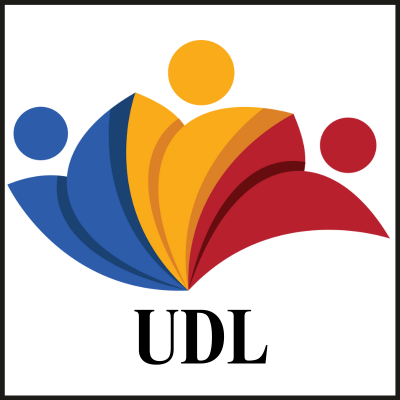A Universal Design for Learning Approach to Supporting Neurodiverse Students

The human population is neurodiverse. How one person processes information and thinks is different from another. Neurodiversity exists on a spectrum, with some patterns considered “neurotypical” and some “neurodivergent.”
In Spring 2024, 1,147 NC State students were registered with the Disability Resources Office (DRO) due to some form of neurodivergence: attention deficit disorder (ADD), attention deficit and hyperactivity disorder (ADHD), a learning disability or some combination of these. Many students with disabilities are not registered with the DRO (see the latest data from the National Center for Education Statistics), so we know that our population of neurodivergent students is much higher.
How can instructors support these students? Universal Design for Learning (UDL) offers an effective approach to lowering common barriers for students whose thinking and processing might fall outside of what is considered typical. The UDL approach differs from offering accommodations: when we design instruction for the edges of our population (i.e. neurodivergent students), all students benefit.

Universal Design for Learning (UDL) Institute
Online: Aug. 6 from 12 – 4:30 p.m.
Identify opportunities to improve engagement, representation and expression in your course content while making it more accessible to all students in this highly interactive workshop.
Following are four specific skills or processes that may vary between individuals based not on their ability to learn or their intelligence, but on how their brains process information. These can be particularly challenging for neurodivergent students but also difficult for any student under stress. Difficulty with these skills or processes can greatly impact their success in college.
Challenge 1: Planning, prioritizing and organizing
A college student taking five courses must juggle a multitude of tasks, due dates, timelines and requirements. This is very difficult for someone who has trouble planning, prioritizing or organizing their work and their time. This is a common challenge for neurodivergent students, but any college student might struggle a bit with this due to their stage of brain development, level of stress, or simply because they have never been taught how to do it effectively. Instructors can help students succeed and also develop these skills by:
- Helping them know what to prioritize by being clear about course and module learning objectives
- Helping them understand expectations by providing rubrics and exemplars of good work
- Helping them stay on track through regular reminders about upcoming due dates, communicate in multiple ways (email, spoken/recorded announcements, adding them to a course calendar, etc.)
- Supplying project management tools like templates, checklists, waypoints and check-ins for longer term projects or papers
Challenge 2: Staying focused
Becoming overwhelmed by too much stimulation is a particular challenge for those who are more neurodivergent. For anyone, precious cognitive energy and time can be wasted having to work to ignore “noise” and focus. Instructors can reduce distractions in course design by:
- Presenting material in an organized, consistent and predictable way. Get more ideas about organizing online course resources for usability in our Digital Accessibility Guide.
- Avoiding using distracting and overwhelming visual content like excessive decoration, font changes, color, animations, etc. and walls of unbroken text. Learn about more features of accessible text in our digital accessibility guide.
- Ensuring that lecture videos are succinct and don’t contain distracting sounds, visuals, or extraneous stimuli not salient to the topic.
- In live (in person or virtual) courses, segmenting class activities into manageable time chunks, separated by time to process the information.
- Front-loading vocabulary before each lesson to ensure students are familiar with the terminology and don’t get distracted or overwhelmed by unfamiliar terms.
Challenge 3: Identifying key ideas
Distinguishing big ideas from details and understanding how information fits together can be challenging for any novice in a field, but especially for neurodivergent students. Instructors can help students see big disciplinary pictures by:
- Reinforcing key points, perhaps through summaries at the end of each section or note-taking templates to assist students.
- Emphasizing how new material relates to previously learned material through lecture points, assignments, and learning activities. For example, co-creating concept maps with students to make it clear how topics fit together.
- Designing formative assessments to identify and address any misconception while also reinforcing key concepts.
- Connecting new knowledge to the real world so students can see how information is relevant to their lives.
Challenge 4: Expressing what they know
People differ in their strongest means of communication. Some students may struggle with presenting, writing, or taking a timed exam even if they have fully achieved the learning objectives of the unit or course. If a particular means of expression is not part of the stated learning objectives, offer flexibility by:
- Using the same rubric to evaluate different types of products (speeches, presentations, papers, videos) and letting students choose what they produce to show their knowledge.
- Considering if a timed exam can be replaced by an alternative assessment. The most common accommodation requested is more time for timed exams!
A UDL approach to course design can support the success of all students while lowering common barriers to success for neurodivergent students. Of course, even with a course designed with UDL, some accommodations may still be necessary for students with particular needs. The UDL approach is powerful and applies to many other aspects of course design.
If you’re interested in learning how this proactive approach to inclusive teaching might work in your course, attend our half-day UDL institute in August. Learn more about the UDL institute and register.
- Categories:


